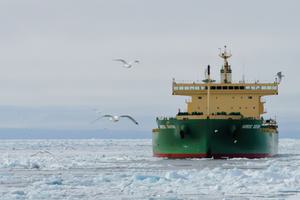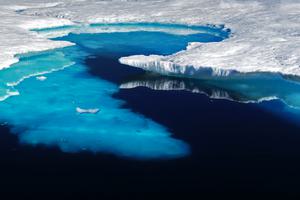Oceans
-
No Longer Wild
How Natural World Heritage Sites Are Being Spoiled
-
Full Speed Ahead
Shipping Plans Grow as Arctic Ice Fades
-
African Wetlands Project
Are ‘Blue Carbon’ Projects a Win for the Climate and the People?
-
Photo Essay
How Pollution is Devastating an Indonesian Lake
-
Artificial Islands
The Rising Environmental Toll of China’s Offshore Island Grab
-
Natural Aquaculture
Can We Save the Oceans By Farming Them?
-
High Stakes on the High Seas
A Growing Call for International Marine Reserves
-
Video Contest Winner - 1st Place
The Dungeness Crab Faces Uncertain Future on West Coast
-
Sticker Shock: The Soaring Costs Of Germany’s Nuclear Shutdown
German Chancellor Angela Merkel’s 2011 decision to rapidly phase out the country’s 17 nuclear power reactors has left the government and utilities with a massive problem: How to clean up and store large amounts of nuclear waste and other radioactive material.
-
At Ground Zero for Rising Seas, TV Weatherman Talks Climate
John Morales is part of a new breed of television weather forecasters seeking to educate viewers on climate change and the threat it poses. In South Florida, where sea level rise is already causing periodic flooding, he has a receptive audience.
-
How Growing Sea Plants Can Help Slow Ocean Acidification
Researchers are finding that kelp, eelgrass, and other vegetation can effectively absorb CO2 and reduce acidity in the ocean. Growing these plants in local waters, scientists say, could help mitigate the damaging impacts of acidification on marine life.
-
Floating Solar: A Win-Win for Drought-Stricken Lakes in U.S.
Floating solar panel arrays are increasingly being deployed in places as diverse as Brazil and Japan. One prime spot for these “floatovoltaic” projects could be the sunbaked U.S. Southwest, where they could produce clean energy and prevent evaporation in major man-made reservoirs.















